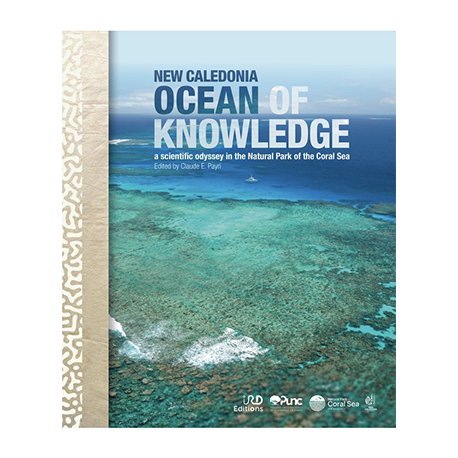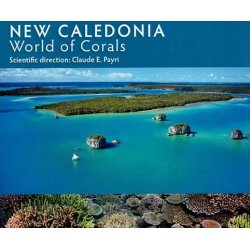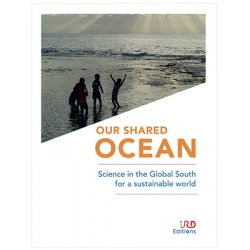
New Caledonia, ocean of knowledge
A scientific odyssey in the Natural Park of the Coral Sea
Claude E. Payri (sous la direction de)
9791091032353 NCOCE-ENG
Also available in French.
Conseils du libraire
Détail produit
| Support | Livre neuf |
| Auteur | Claude E. Payri (sous la direction de) |
| Éditeur | IRD et PUNC |
| Genre | Documentaires |
| Date | 2025 |
| Format | Format 17 x 27 cm, broché, 166 pages |
| EAN 13 | 9791091032353 |
En savoir plus
Spanning 1.3 million square kilometres, the Natural Park of the Coral Sea ranks among the largest marine protected areas on Earth. A true sanctuary of biodiversity, it harbours virtually untouched coral reefs, around 20 remote islets, and a vast expanse of seamounts and deepsea trenches, where largely unexplored ecosystems continue to thrive. Certain places are considered sacred in Kanak beliefs and traditions, each holding a specific meaning.
Through seven chapters, this book unveils the major scientific discoveries that have shaped our understanding of this exceptional marine environment. From colossal oceanic eddies to the mysterious fauna of the open sea, from vast carbon sinks to the fragile richness of coral reefs – not to mention the sought-after deep-sea zones and the spectacular bursts of colour visible from space – numerous scientific expeditions have helped lift the veil on the many secrets of a territory that remains largely unexplored.
The result of several decades of exploration, research, technological innovation, and strong local and international collaboration, this book also tackles major environmental issues – most notably the numerous consequences of global warming. It highlights the importance of dialogue between science and society, bringing together scientists, customary authorities, decision-makers, managers, associations, users, and future generations.
This book stands as a valuable testament to the urgent need to protect an exceptional natural heritage – a shared asset for all New Caledonians – where scientific knowledge, indigenous wisdom, dialogue, innovation, sustainable use, and conservation must be brought together as harmoniously as possible.
 (
(



 Lettre d'informations
Lettre d'informations